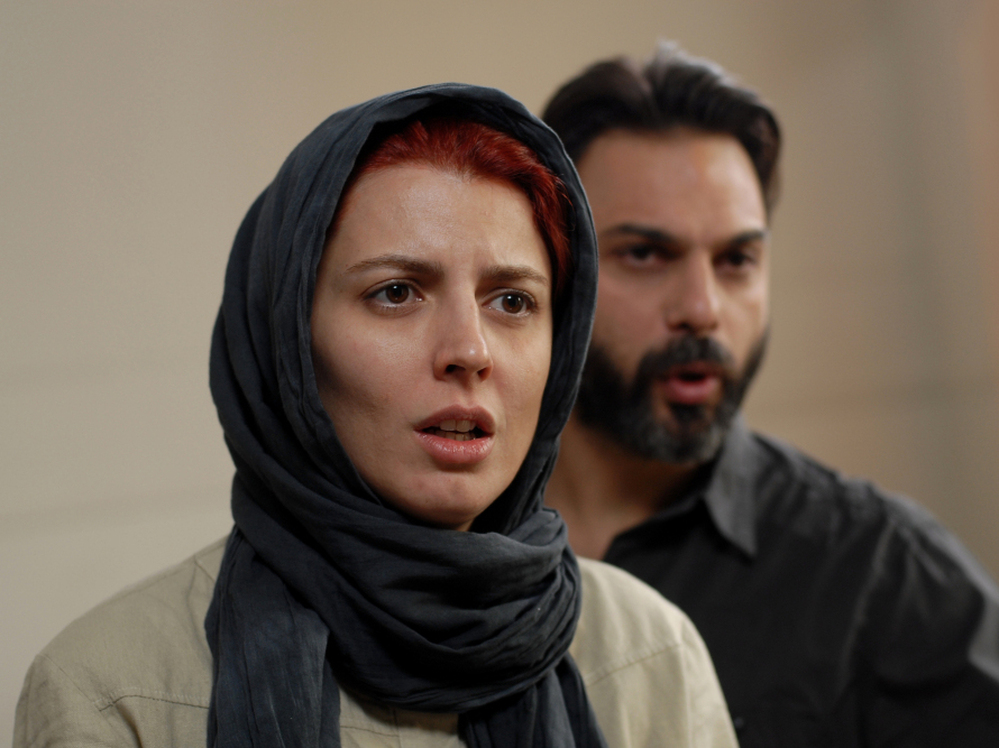The couple.
Again, after a long hiatus in film reviewing mainly due to countless school works and some love sickness, yours truly is back with a take on "A Separation" on his sleeves. Bar none, this film is indeed one of the best of the year on different levels. It's not just a film made good because of a couple of excellent performances or a film made exceptional by a good story. "A Separation", an Iranian film that has won a record of three bears in the 61st Berlin International Film Festival, is a socio-religious morality play that combines a compelling narrative with stirring performances. And in this mixture, one can easily see the flawlessness of it all. Its Academy Award is more than deserved.
Directed by Asghar Farhadi, what also makes "A Separation" a notch more special is how it has seemingly made all the complex issues within it flow quite effortlessly. On one side, the film is about the utter devotion to Islamic faith and how doubt can shake things up for the worst. On the other, it's also a penetrating study of class conflict and the fragility of truth. Watching "A Separation", I can't help but be reminded of both "12 Angry Men" and "Rashomon" in terms of how it has also finely explored the subjectivity of truth based on perception and biases and also of a local independent film here in the Philippines entitled "Last Supper No. 3" in terms of the film's realistic portrayal of the legal system.
But then again, "A Separation" has too much going on with it that it can't just be merely branded as a meditation on truth. It is, after all, a film about a couple's (played by Peyman Moadi and Leila Hatami) separation and how this can cause a definite ripple effect to other people, specifically a pregnant helper named Razieh (Sareh Bayat) and her husband (Shahab Hosseini).
Partly seen through the eyes of the pre-adolescent daughter named Termeh (played by Sarina Farhadi), the film is an observation not of a crumbling marriage but of the domino principle that comes with it and how it affects those around them. There were even no questions raised regarding whose side (husband or wife) are you on. Instead, the deeply moral questions are raised not mainly to us but to the daughter herself, which leads to one of the most quietly powerful endings in recent memory.
As the film patiently unfolds, one can easily see how "A Separation" could have also worked quite beautifully on stage. It has the right amount of intensity, complexity and spontaneity; ingredients of an effectively modern theater play. It's also populated with characters that are both realistic and fascinating thanks to the natural performances of the actors involved, which makes me to think that this may also be the most powerfully-acted film of the year.
For me, what makes a film powerful, aside from the weight of the things that it wants to say and how they are said, is not being conscious of its strengths. This is the case for "A Separation". It definitely knows what it wants to say but does not preach it. It has a very beautiful material but does not flaunt it. Its drama is powerful enough to explore far-reaching themes of immense societal relevance but does not impose it. Instead, the film just went its way to use the universal language of marriage, separation and religion within the confines of the equally universal language of cinema and tell what needs to be told.
What resulted is a film of disquieting power and truth that echoes far beyond its country of origin. Although I would occasionally fawn over an incoherent art film or two, I believe that films like "A Separation" are the ones that we really need today. In a contemporary world where failure of communication is a widespread occurrence, the role of cinema has never been more important. "A Separation" has just exercised the core reason of the medium's very existence.
FINAL RATING




No comments:
Post a Comment